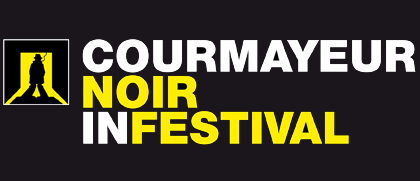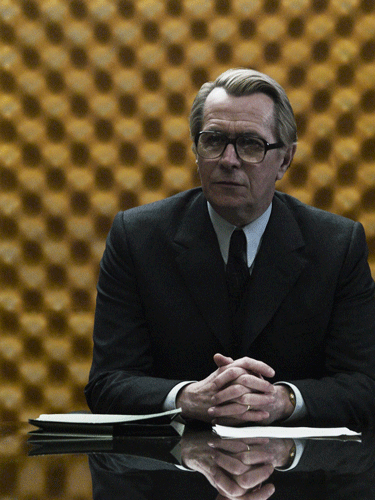by Adrian Wootton
John le Carré (1931, Poole, Dorset) is the most prolific popular and critically acclaimed novelist currently writing espionage fiction in the English Language. Since his first novel in Call For The Dead in 1961 he has published 23 Novels & various short stories and been garlanded with success and awards throughout the world including becoming a recipient of The Raymond Chandler award at Noir in Festival in 2001.
From the beginning of his work as novelist le Carré introduced a new kind of espionage. protagonist to the reading public, an antidote to James Bond, Matt Helm or even Richard Hannay; an intellectual, introspective physically unattractive, elderly spymaster namely George Smiley who would feature as a major and minor character in 8 Novels between 1961 and 1990 including le Carré's breakthrough bestseller the 1963 The Spy Who Came In From The Cold. Smiley is a tormented idealist a despairing romantic, old fashioned english gentleman and occasional academic. He is also a ruthless brilliant espionage maestro who's consistent cuckolding by his wife Anne is his greatest Achilles heel and what drives him on as a to eventfully confront and ruin his greatest adversary/enemy as played out in le Carré's masterful "Karla" Trilogy of Tinker Tailor Soldier Spy (1974), The Honourable School Boy (1977) and Smiley's People (1979). In creating Smiley and the morally ambiguous politically complex world, of the British MI5 "Circus" surrounding him le Carré irrevocably changed the fictional depiction of espionage, bringing an authenticity, seedy veracity and grimy believability to the stories and characters he created. He also introduced a whole new nonclemature for branding and describing the practices of spying that introduced a wealth of new terminology that has passed into our lexicon of espionage vocabulary (lamplighters, spooks etc). Also from very early in his writing career the popularisation of le Carré's radical reengineering of fictional espionage was aided immeasurably by its regular adaptation into the movies. This started with Martin Ritt's brilliantly gritty, US Financed largely British made film version of The Spy Who Came in From the Cold which, filmed in 1964 & released in 1965 soon celebrates its 50th anniversary. Le Carré has, relatively recently, written brilliantly about his own experiences relating to the film and of working especially with its mercurial star Richard Burton on his dialogue (The New Yorker 15th April 2013, The Spy Who Liked Me). But aside from its leading actor and maverick director The Spy Who Came In From The Cold is also very notable in its 50th year because it marked (albeit somewhat briefly) the first on screen appearance of George Smiley. Although restricted to only a few scenes he is established as a key element in the le Carré universe and the character is embodied by British actor Rupert Davies who at that time in the 1960's was a noted English actor. Fascinatingly Davies occupied a fond place in the British public's hearts because of his embodiment on TV of George Simenon's legendary French detective Maigret. So it's reasonable to speculate that is why he was give the role of undoubtedly le Carré's greatest character!
Since then there have been many good, mediocre and occasionally poor adaptations of le Carré's work (10 completed film, 3 tv series and one TV movie between 1965-2014) which le Carré has engaged with in varying degree s although in latter years exercising much more creative control over them.
Consistently George Smiley has featured in these adaptations. Hard on the heels of Rupert Davis, Jane's Mason, albeit with a copyright forced name change to Charlie Dobbs, played Smiley in Sidney Lumet's The Deadly Affair in 1966 (based on A Murder of Quality). Smiley should have also featured in the third le Carré film adaptation Frank Pierson's 1969 The Looking Glass War as he was a character in the original novel but the producers somewhat unwisely cut his character out of the movie's script.
There was then a hiatus in adaptations of le Carré's work and it was only when with the author's direct support and input the BBC decided to Commission a multi part adaptation of Tinker Tailor Soldier Spy for British tv did Smiley return to the screen. This time in 1979 the character was brilliantly portrayed by legendary actor Alec Guinness (a personal choice of the author who was enjoying a late burst of re weds fame because of his appearances in the Star Wars movies) and the series was something of a sensation when broadcast making le Carré and Smiley a household name. Guinness was particularly praised by the public and critics as being the perfect version of Smiley sensitively incorporating and demonstrating his intelligence, contradictions, conflicts, all too apparant weakness and inner strenghths.
The success of the series was such that the BBC agreed to make a follow up omitting the second volume of the trilogy The Honourable Schoolboy because of the cost of making it and going straight to the final instalment Smiley's People. Also because the original screen writer was unavailable le Carré very unusually co-wrote the script of this tv series adaptation and the result when broadcast in 1982 was if anything an even bigger success.
After this there was talk for some time of a further outing of Smiley/Guiness but although there was another book (The Secret Pilgrim) that could have been made the actor felt in his last years he was simply too old to do justice to one of his greatest ever performances and the idea was quietly dropped.
This lead to another long gap in Smiley adaptations (whilst other films of Le Carre's work were developed and some made) until with little fanfare in 1991 a TV movie version of Le Carre's second novel A Murder of Quality was produced, scripted once more by the author himself. This featured versatile, respected British film and TV actor Denholm Elliott doing a very decent job in the Smiley role. Elliott had a long career perhaps most notably appearing in the Indiana Jones movies although bizarrely he also appeared in a 1960's brit spy comedy spoof made the year after The Spy Who Came In From The Cold called The Spy with The Cold Nose! A Murder of Quality was reasonably well received but no more and sadly this was to prove something of a swansong for Elliott as he passed away in 1992 the year after this was made.
Another two decades passed before Smiley returned (leaving aside various radio versions) this time back to the cinema. In 2011 with the support & input of le Carré, UK film production powerhouse Working Title, supported by studio Canal with tyro director Tomas Alfredson at the helm remade the classic Tinker Tailor Soldier Spy for the big screen, with an all star brit cast lead by the brilliant Gary Oldman as Smiley. Despite the long shadow cast by Alec Guiness, Oldman's Smiley was a revelation reincarnating the character in 70's period setting and breathing new bittersweet life into him for a new generation of audiences. Rightly nominated for Best Actor Oscar in the 2012 Awards Gary Oldman was unjustly overlooked in favour of the lead actor of the all conquering The Artist. Nonetheless because of Oldman we got Smiley back in all his weary shopworn, sharp, melancholy brilliance. And the same team are re-uniting to make anew film version of Smiley's People for cinemas in 2016, which is to to say the least a tantalising prospect.
And all this from a start some 50
years ago with the first film of le Carré's Work and the first actor Rupert
Davies to play him. It seems therefore only fitting at this year's Noir in
Festival in Courmayeur to reflect on this rich literary and cinematic history
and Celebrate 50 years of le Carré on screen and the many faces of George
Smiley.


